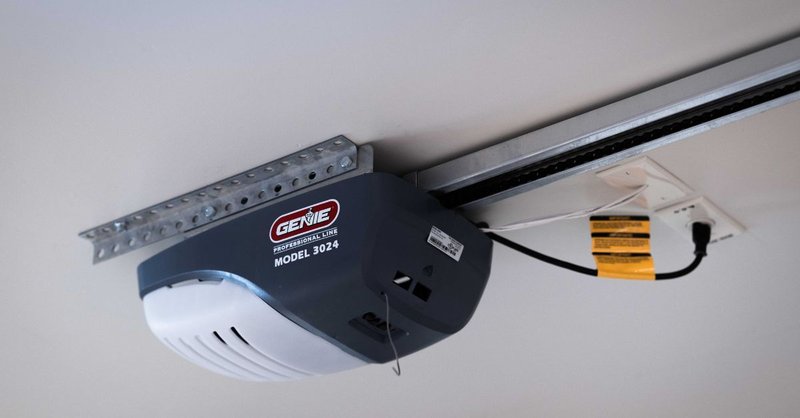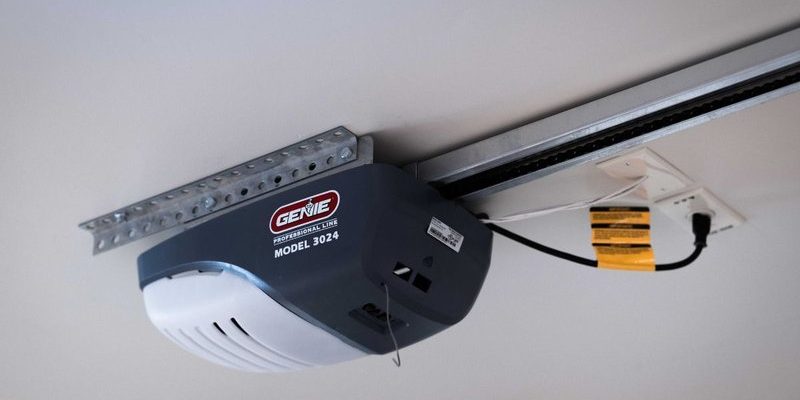
Think of AC motors like traditional muscle cars—they’re powerful and robust, often found in older models. In contrast, DC motors resemble sleek, modern electric cars that emphasize efficiency and quiet operation. Understanding these motor types will not only help you make an informed purchase but also ensure that your garage door opens smoothly and quietly every single time.
Now, if you’re eyeing automated garage door openers from brands like Chamberlain or LiftMaster, you’ll want to know how AC and DC models stack up against each other. Let’s explore these motor types in detail so you can make the best choice for your home.
What Is an AC Garage Door Opener?
AC garage door openers utilize an Alternating Current motor to operate the door. These motors traditionally run on standard household electricity. When you press the remote or the button on the wall, electrical energy is sent to the motor, which powers the opener to lift the door.
One of the main perks of AC motors is their strength. They generate higher torque, which means they can lift heavier doors with little strain. If you have a particularly large or heavy garage door, an AC opener might be your best bet for reliable performance.
However, with great power comes a little noise. AC motors can be louder than their DC counterparts, and if your garage door is situated near a bedroom or living space, you might want to think carefully about this. The roar of the motor can be a bit annoying if you’re trying to sneak out late at night.
Advantages of AC Garage Door Openers
When choosing an AC motor for your garage door opener, consider these advantages:
- Powerful Performance: AC garage door openers can handle heavy doors with ease, making them a favorite for large garages.
- Durability: These motors tend to have a longer lifespan due to their sturdy design and resistance to wear.
- Cost-Effective: Generally, they are less expensive than DC motors, making them a budget-friendly option.
That said, you also need to consider the potential downsides. AC models are less energy-efficient compared to DC models, meaning they consume more power over time. So, if energy savings is a concern for you, this is something to keep in mind.
What Is a DC Garage Door Opener?
DC garage door openers run on Direct Current motors, which are typically more advanced in design compared to AC motors. Instead of generating power directly from your home’s electrical supply, these motors often involve a battery backup, making them fantastic for energy efficiency and saving power.
What’s really cool about DC motors is their versatility. They can start and stop smoothly, making them great for quiet operation. If silence is golden for you, perhaps because your garage door is right next to your living space, a DC opener will be much quieter than an AC motor as it operates.
Another neat feature? Many DC openers come with built-in soft-start and soft-stop functions. This means when you open or close your garage door, it accelerates gradually and then decelerates before coming to a stop. This is not only gentle on the motor but also reduces wear and tear on the door and its components.
Advantages of DC Garage Door Openers
DC motors offer several advantages that make them appealing:
- Energy Efficiency: They consume less power than AC motors, which can lead to lower energy bills.
- Quiet Operation: Perfect for homes where noise pollution is a concern, particularly at night.
- Smooth Operation: Their starting and stopping mechanisms are gentle, enhancing the longevity of the garage door system.
However, keep in mind that DC models can sometimes be more expensive than AC openers. They may also require specific installation considerations, particularly regarding the battery system.
Comparing AC and DC Motors
To really get a grasp on the differences between AC and DC garage door openers, let’s run through a quick comparison table:
| Feature | AC Motors | DC Motors |
|---|---|---|
| Noise Level | Louder | Quieter |
| Power Consumption | Higher | Lower |
| Torque | Higher | Moderate |
| Cost | Generally cheaper | Can be pricier |
| Durability | Long-lasting | Reliable but slightly more prone to wear |
This table offers a quick side-by-side look, helping you see why you might prefer one motor type over another based on your needs.
Installation Considerations
When selecting an AC or DC garage door opener, the installation process can vary. AC openers tend to have straightforward installations since they connect directly to your home’s power supply. Most models come with clear instructions and all the necessary hardware.
On the other hand, DC openers might require more thought. The battery backup aspect means there are additional components to consider, which can complicate the installation slightly. You might find that hiring a professional installer for a DC motor is beneficial to ensure everything is correctly set up.
Keep in mind that whether you pick AC or DC, you’ll want to take the time to read your manual carefully. Each motor type generally comes with its own quirks, and familiarizing yourself with the specifics will help ensure smooth operations once everything is set up.
Maintenance Tips for Both Motor Types
Once you’ve got your garage door opener installed, maintenance becomes key to longevity and performance. Here are a few tips to keep in mind, regardless of whether you chose an AC or DC model:
1. Regular Inspections: Get into the habit of inspecting your garage door and opener at least once a month. Look for any loose screws or hardware and check the tracks for any obstructions.
2. Lubrication: Keeping the moving parts well-lubricated—like rollers and hinges—will reduce strain on your motor and extend its lifespan.
3. Cleaning: Dust and debris can accumulate over time. Make sure to wipe down the motor and any visible wiring to keep everything operating smoothly.
4. Battery Checks (for DC motors): If you’ve opted for a DC motor with a battery backup, monitor the battery level regularly. Replace it as needed to ensure your opener works even during power outages.
A little regular care goes a long way in preventing major issues down the line, ensuring that your garage door opener works reliably when you need it.
Deciding between AC and DC garage door openers can feel overwhelming, but understanding the differences makes it clearer. AC motors offer strength and durability at a lower cost, making them ideal for heavy doors. Meanwhile, if you prioritize quiet operation and energy efficiency, the advantages of a DC opener may outweigh the initial costs.
Ultimately, your choice boils down to your specific needs, your garage door’s weight, and how much noise you’re willing to tolerate. Whatever motor type you choose, ensure you follow our maintenance tips to keep your garage door functioning smoothly for years to come. Here’s to finding the perfect opener that makes your life just a little bit easier!
